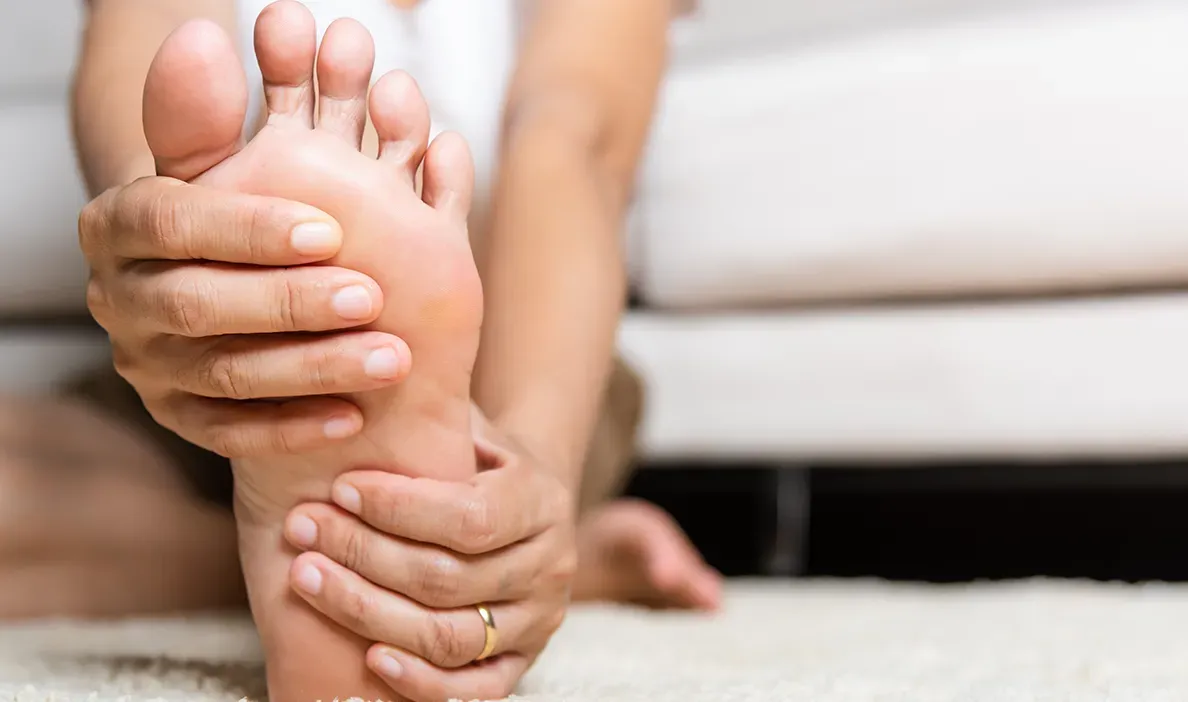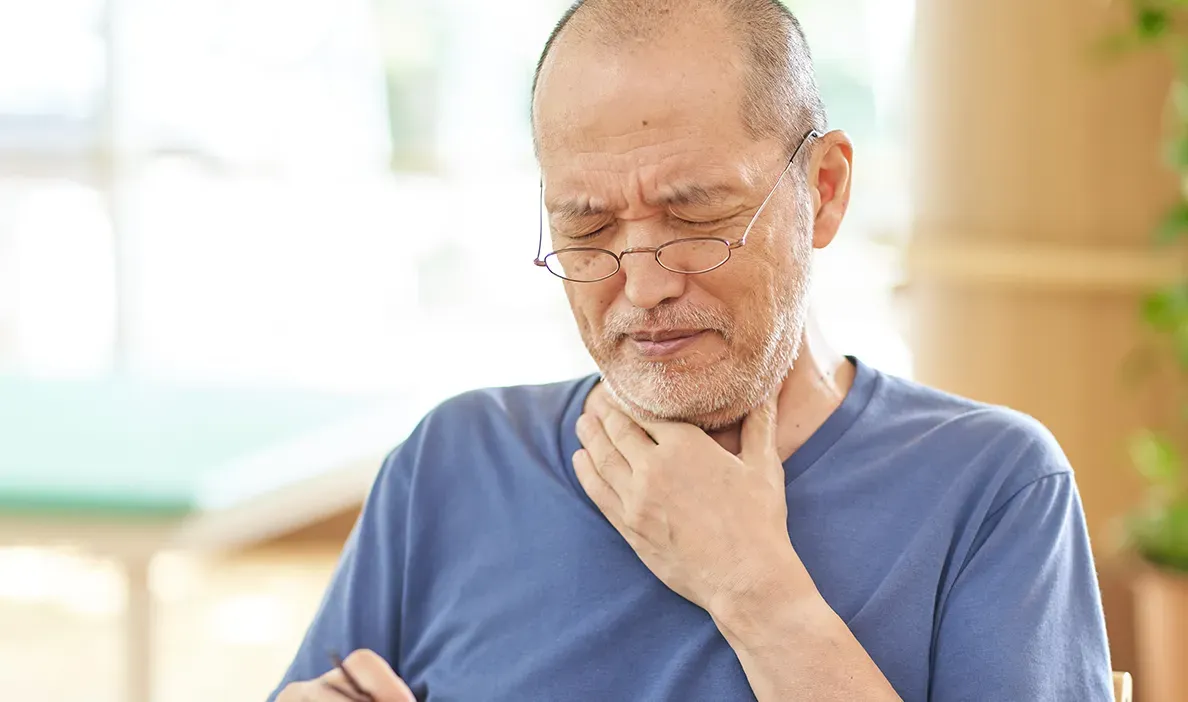Cancer might cause uncomfortable symptoms, and treatment for cancer might cause unpleasant side effects. One symptom or side effect you may experience is called peripheral neuropathy.1 This is where nerves in areas such as the hands, feet or arms become damaged. This may happen as a result of cancer treatment – most commonly, after chemotherapy or surgery - or as a symptom of the cancer pressing on a nerve.1,2
The symptoms of peripheral neuropathy can include pain, tingling, pins and needles, and feeling light-headed or dizzy.2
Although there isn’t a treatment to prevent or reverse nerve damage, there are ways you may be able to manage symptoms of peripheral neuropathy and help prevent any further nerve damage.1 We’ve put together some tips to help you.
Treatment or therapy for nerve pain
There are different ways to help you manage your nerve pain, including medication and physical therapy.1,3,4
Some medicines that are prescribed for peripheral neuropathy work by changing the way the nerves send impulses.1 Anti-depressant medicines are also sometimes recommended for peripheral neuropathy. Please don’t worry if you are given these when you’re not depressed – these are used because of how they act on nerves. Common pain killers such as paracetamol usually do not work for nerve pain.1,3
If you experience peripheral neuropathy, you may find it beneficial to visit a physiotherapist or occupational therapist. They can give you advice to help you regain strength and improve your coordination and balance, which can make daily tasks easier.1,4
Many hospitals also have specialist doctors and nurses for assessing and treating pain. Please speak with your doctor if you are struggling to cope or manage the pain, and they will be able to refer you to a pain specialist.1
Things you can do to help with nerve pain
One way to help you cope with peripheral neuropathy is to manage the symptoms and prevent any further damage to the nerves.1 Here are a few ways you might be able to dampen some of the symptoms of peripheral neuropathy.
Looking after your hands and feet
Keeping your hands and feet protected during your daily tasks is important to help you manage your symptoms. You can:1,4
- Keep them warm by wearing gloves and socks
- Wear gloves when washing up to avoid touching any hot water
- Avoid walking around barefoot, and check your feet often for cuts or scratches
Reduce the feeling of light-headedness
Feeling light-headed or dizzy may increase your risk of injury. To avoid this, or reduce the symptoms of light-headedness, you can:1,4
- Drink plenty of water throughout the day. Being dehydrated can make these symptoms worse
- Do some leg exercises before you stand up to increase your blood flow
- Ask your GP about tight-fitting leg socks that can be worn throughout the day to increase your blood flow
- Move slowly when you stand up
Prevent any potential falls
You may find that your balance and coordination are affected by peripheral neuropathy. To help you prevent a fall you can:1,4
- Make sure that your rooms are well lit, so you can see anything in your way
- Keep any areas that you might walk through clear and free of obstacles
- Stand up slowly if you have any dizziness
Remember, these tips are to support you, but your healthcare provider is always the best resource for managing symptoms effectively. Please don’t hesitate to speak with your healthcare team if you have any new symptoms, or if your symptoms are getting worse.
References
- Macmillan. Peripheral neuropathy. Available at: www.macmillan.org.uk/cancer-information-and-support/impacts-of-cancer/peripheral-neuropathy [Accessed June 2025].
- NHS. Overview: Peripheral neuropathy. Available at: www.nhs.uk/conditions/peripheral-neuropathy/ [Accessed June 2025].
- NHS. Treatment: Peripheral neuropathy. Available at: www.nhs.uk/conditions/peripheral-neuropathy/treatment/ [Accessed June 2025].
- Cancer Research UK. Nerve changes and cancer drugs. Available at: www.cancerresearchuk.org/about-cancer/treatment/cancer-drugs/side-effects/nerve-changes [Accessed June 2025].






